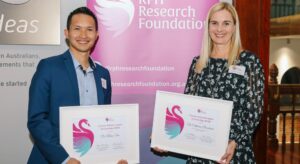An international task force has sought the expertise of Edith Cowan University (ECU) researchers to assist in developing clinical and research guidelines for a common age-related condition.
Sarcopenia is characterized by the loss of muscle mass, strength and physical performance.
The effects can be debilitating — and extremely common. An estimated 29 per cent of older adults living in the community have sarcopenia, with the number rising among those who are hospitalised, have multiple conditions, frailty or live in residential aged care facilities.
Yet despite its prevalence, there has been ambiguity regarding how sarcopenia should be defined.
There has also been a lack of updated clinical and research guidelines, including consumer perspectives specific to Australia and New Zealand — until now.
Researchers from ECU’s Nutrition and Health Innovation Research Institute (NHIRI) worked with a team of experts across Australia and New Zealand to develop guidelines for sarcopenia’s prevention, diagnosis and management in the two countries.
The team, known as the Sarcopenia Diagnosis and Management Task Force, sought feedback from people affected by sarcopenia, health professionals, researchers and academics to formulate 17 recommendations for sarcopenia management and research.
These include advice for clinicians on how to prevent sarcopenia, such as a healthy diet and physical activity, how to assess and monitor sarcopenia in patients, and how to define and diagnose the condition.
ECU senior research fellow Dr Marc Sim said many people were unaware of sarcopenia, despite its prevalence in the community.
“Hopefully these important findings raise the awareness of sarcopenia, and can help people impacted by the condition,” he said.
“It will also allow medical professionals to provide best-practice advice to help people avoid developing it.”
Associate Professor David Scott and Dr Jesse Zanker led the taskforce.
“For too long people have believed losing muscle and strength is an inevitable part of ageing,” Professor Scott said.
“We can all prevent, slow and in some cases reverse loss of muscle and strength.
Dr Zanker said it’s time to empower people to be in control of their independence.
“These guidelines are the first of their kind to illuminate a path forward,” he said.
“This research will have a real impact on people’s lives.”
‘Consensus guidelines for sarcopenia prevention, diagnosis and management in Australia and New Zealand’ was published in Journal of Cachexia, sarcopenia and Muscle.









